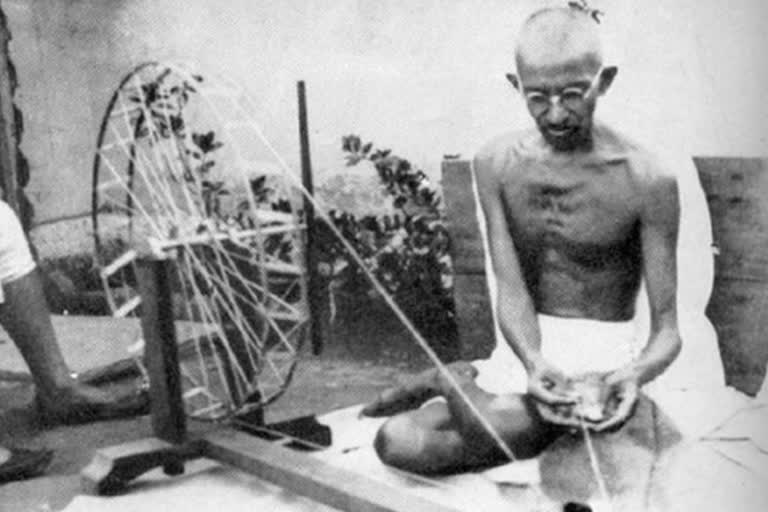Hyderabad: As the nation marks the anniversary of two great Indian leaders who associated themselves with farmers. Father of the nation, Mahatma Gandhi, and former prime minister Lal Bahadur Shastri both were born on October 2.
While Shashtri gave India, 'Jai jawan, jai kisan' slogan, Gandhi wrote, “India lives in farmers’ huts. The weavers’ skill is a reminder of India’s glory, and so I feel proud in describing myself as a farmer and weaver.”
At a time when India is witnessing massive farmers protest against the recently passed Farm bills, 2020, let's take a look a how Gandhi looked at farmers and their rights.
Gandhi believed that the land should not belong to an individual or to the State. Rather it should belong to the primary face-to-face local people’s communities.
Although in the concept of trusteeship there is no space for monopoly, privilege, or individual ownership, Mahatma Gandhi used to believe that a farmer should have that much land on which he and his family members could cultivate.
Also read:'Yogi or Rogi'? - Siddaramaiah attacks UP govt over Hathras incident
“The farmer needs to know that his first business is to grow for his own needs. When he does that, he will reduce the chance of a low market ruining him.”
Gandhi also rejected modern civilisation as a mode of life and work, and invoked agriculture, charkha, and the village as metaphors for sane human living.
He believed that agricultural practices should be organic and the things being used in agriculture should be labour intensive, appropriate and environment-friendly.
It is for this reason that during the fight for independence he did not launch any movement for land reforms in favour of the farmers and landless and against the landlords.
However, post-independence, he wanted to launch a new revolution in the field of agriculture. Under this revolution, he wanted to organise, enlighten, and energize the landless farmers.
Gandhi’s conception of Swaraj (complete independence) agriculture was the cornerstone of all development.
He wanted policies that would help build up agriculture and production of goods essential for the people through a network of cottage industries that would generate employment for the people.
Also read: 3-year-old girl raped by minor in Himachal's Una
How much of what Gandhi believed in when it came to farmers is being followed, we can witness.
Along the same line, today various political leaders, while paying tribute invoked Gandhi, including Congress President Sonia Gandhi, party leader Rahul Gandhi and Priyanka Gandhi Vadra quoted, "I will not fear anyone in the world … I will not bow down to anyone’s injustice, I will win over untruth with truth and I can bear all the sufferings while opposing the untruth.”
(With PTI inputs)



